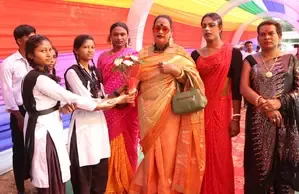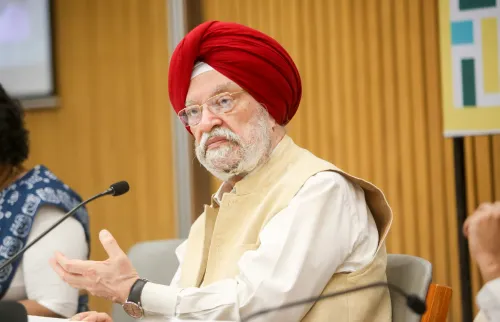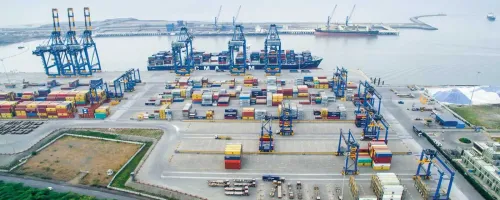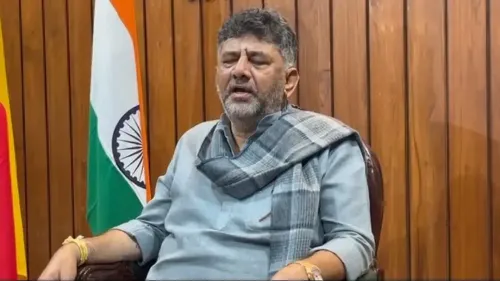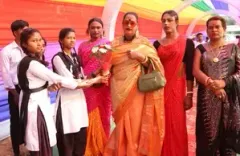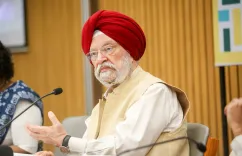Jammu and Kashmir: Clear Distinction in Powers Between L-G and Omar Abdullah Administration, Assert Home Ministry Sources
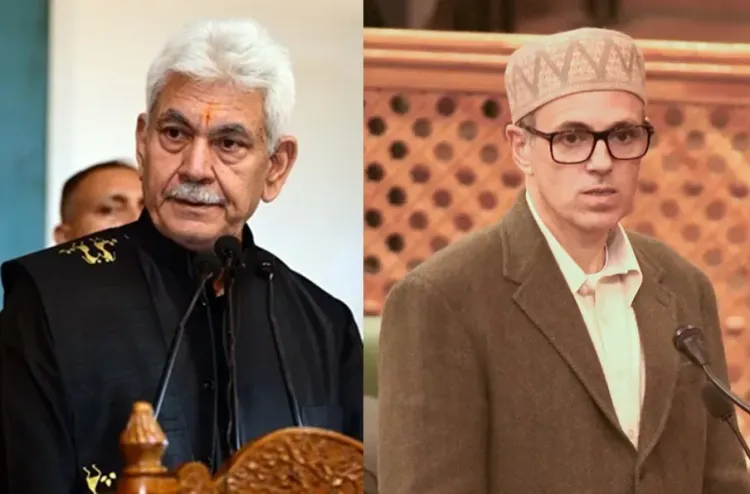
Jammu, Dec 6 (NationPress) Amidst escalating tensions concerning the division of authority between the Raj Bhavan and the elected administration in Jammu and Kashmir, the Union Home Ministry has clarified that there is no issue of overlapping powers, asserting that the jurisdictions are distinctly defined, as per sources on Friday.
This statement follows several incidents where the Omar Abdullah administration has expressed grievances.
In a bid to escalate the ongoing disagreement, Deputy Chief Minister Surinder Choudhary remarked on Friday that the Omar Abdullah administration possesses sufficient authority to meet the expectations of the populace.
A point of contention appears to be the appointment of the advocate general, which has sparked notable friction.
D.C. Raina tendered his resignation from the position of advocate general of the Union Territory immediately after the elected government assumed office. Subsequently, Chief Minister Omar Abdullah 'rejected' Raina's resignation, instructing him to continue in the role.
Nevertheless, despite the chief minister's request, Raina could not recommence his duties as advocate general, reportedly due to the absence of approval from the Raj Bhavan to endorse the chief minister's order.
This situation is perceived as one instance of 'clash of authority' between the Raj Bhavan and the elected administration.
Another flashpoint arose when the Raj Bhavan transferred three IAS officers while the chief minister was in Saudi Arabia undertaking the 'Umrah' pilgrimage.
“When viewed from the appropriate angle, there is no overlapping of jurisdiction. The authority to appoint the advocate general resides with the Lt Governor as stipulated in the J&K Reorganisation Act 2019, alongside the J&K Reorganisation Amendment Act 2023. This should not be misconstrued as a point of contention between the Lt Governor and the chief minister. The chief minister, as long as he holds the office in J&K as a union territory, should have no misconceptions about his powers. The chief minister possesses all powers except for the prerogative to transfer IAS/IPS officers, which solely belongs to the Lt Governor, as does the authority over the UT police department. If the Lt Governor has ordered the transfer of certain IAS officers in the interest of administration, why should anyone interpret this as an overlap or overreach of jurisdiction?” sources within the Union Home Ministry informed IANS.
“Lt Governor Manoj Sinha has made it abundantly clear that he is committed to supporting and collaborating with the elected administration. In fact, it was the diligent efforts and dedication of the L-G that both Lok Sabha and Legislative Assembly elections were conducted peacefully and fairly, reflecting the will of the people in the elected government currently in J&K,” the sources stated.
“The L-G is constitutionally obligated to fulfill his duties as outlined in the Reorganisation Act. It is important to note that there is no such thing as absolute power residing with either the Lt Governor or the chief minister. Both hold constitutionally elected and appointed positions and must operate for the public benefit. Anyone attempting to create discord between the offices of the Lt Governor and the chief minister is neither a true advocate for the people nor for the esteemed offices they wish to pit against each other,” additional sources from the ministry conveyed.
These same sources mentioned that the rules of business are currently under review by the Union Home Ministry and will soon be released to quell any speculation regarding overlapping jurisdictions in J&K.
In summary, as long as J&K remains a Union Territory, members of the council of ministers must comprehend the limitations imposed by the Constitution on their ability to exercise powers freely when these conflict with those granted to the office of the Lt Governor.

